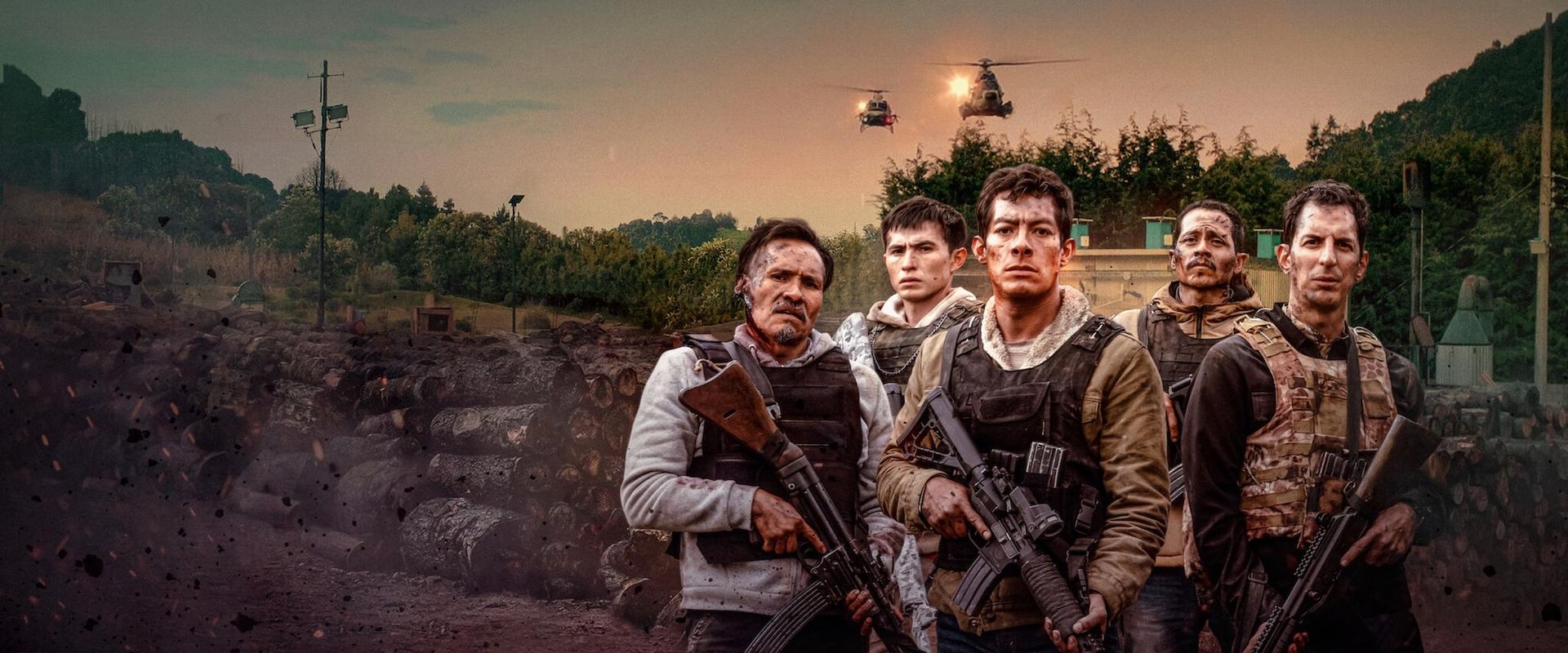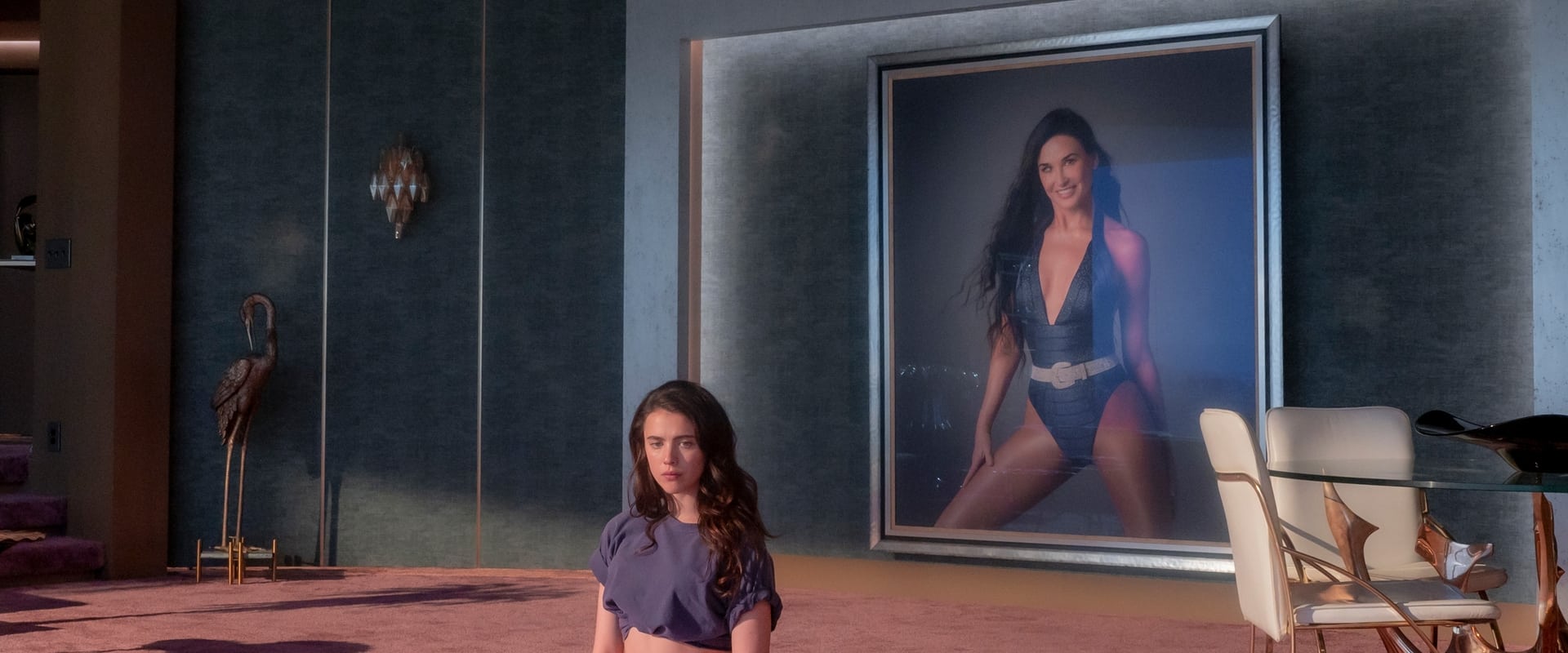Just when you think you’ve seen every action movie variation—a relentless barrage of bullets, a battered hero bleeding patriotism in the dust, evil men with nicknames like “The Stinger”—along comes Counterattack, a film that throws itself into the jungle firefight with reckless abandon, only to get pinned down by the most familiar artillery in the screenwriter’s arsenal. If the action genre has become the cinematic equivalent of a well-worn pair of combat boots, this international effort polishes the leather but never changes the tread.
The premise is as sharp as the crack of an AK in the predawn dark: two unwary women find themselves at the wrong mass grave, at the wrong time, abducted by the chittering cockroaches of the El Enjambre cartel. This is Mexico’s blood-soaked drug war rendered as action spectacle, and director Joaquin Rodríguez (to his credit) doesn’t flinch from painting the landscape in bold, sun-scoured strokes: the rural countryside stretches out like a wound, the tension pulsing through every frame. If only the script had sweated half as hard as the camera operators.
Enter Captain Armando Guerrero (the smoldering Luis Alberti, whose brow furrows with every decision as if carrying the weight of Mexico’s battered soul). As the leader of the elite Murciélagos unit, he’s designed as the answer to Stallone and Schwarzenegger—only this time in a bulletproof vest trimmed with Latin American tragedy. Alberti brings a real, aching commitment to his performance; the moments of camaraderie among his squad are the rare times when this movie breathes. Watching the Murciélagos joke, grieve, and sacrifice together, you sense the ghosts of better war films nudging at the edges: a flash of Platoon here, a glimmer of Black Hawk Down there.
But the script, let’s be honest, serves up Mission: Predictable. El Aguijón (Noé Hernández) is the villain by way of a Central Casting fever dream: menacing, ruthless, with the moral subtlety of a sledgehammer, and about as three-dimensional. The supporting players drift in and out, occasionally threatening to develop personalities before being yanked rudely back into cliché. If attention to character detail matters to you, expect to feel shortchanged at the Murciélagos’ mess hall.
Still, Counterattack wants to matter. It sniffs at Big Themes: corruption, moral compromise, the brutality that seeps into the soul of a country under siege. In its best moments, it brushes up against something haunting—the notion of good men ground down by the machinery of evil. But then, before you can contemplate the abyss, a truckload of narcos roars in wielding M4s and the Murciélagos leap into action like indestructible avatars, mowing down dozens with barely a sweat. You half expect to see “directed by Michael Bay” flash across the screen, with a tequila chaser.
The action itself is staged with muscular competence, but the special forces’ apparent invincibility is more comic book than combat realism. In the logic of Counterattack, fifty cartel killers are no match for six men and a can-do attitude. This is the kind of movie where the fate of entire regions turns on who can fire more rounds per second, courage outpacing plausibility as easily as a Humvee in fourth gear. When Captain Guerrero and his team are tracked through the jungle using a compromised phone, the tension should be palpable—a high-tech chess game in the digital underbrush. And yet, the script fumbles: if the narcos can track the good guys’ phones, shouldn’t the special forces, seasoned in tactical operations, be able to do the same for themselves? When the script waves away such logic, we’re no longer in the realm of gritty realism; we’re at a Saturday night action matinee, popcorn grease on our fingers.
Even more confounding is the botched rescue setup: at one point, our heroes are sixteen kilometers—hardly a day’s march!—from safety, only for the final helicopter exfil to arrive just as the action fizzles out. If you’ve ever wondered how long it takes the Mexican military to traverse the distance of a brisk jog, Counterattack provides no answers, just another whirring aerial shot and a muddled sense of urgency.
On the level of craft, Rodríguez directs with assured efficiency. The cinematography renders Mexico with a harsh, sometimes lyrical honesty—rusted fields, bone-bright sunshine, the jagged green of the hillside bleeding into blood and gunpowder. There are glimpses of a more passionate, idiosyncratic movie—the banter among soldiers, the weariness in their eyes, the brief moments of humility before the machine guns start barking again. You suspect the actors are hungry for a script that lets them run, shout, and weep as real men would.
Which brings me to the film’s true stumbling block: the writing. There’s no fatal flaw here—just the slow, suffocating squeeze of genre anonymity. Counterattack is never less than serviceable, but it’s never more than that either. The dialogue does its job like a corporal ticking off a checklist; the plot lumbers through familiar beats, every betrayal and heroic standoff telegraphed like an old Morse code transmission. What could have been bracing and urgent—an unflinching look at the war consuming a nation—settles instead for echoes of better movies, lost in the thunder of simulated warfare.
If you’re after a night of simple, efficient thrills—good guys gunning down bad guys, explosions bursting against a backdrop of sociopolitical unrest—Counterattack delivers enough to keep your attention. For those seeking depth, innovation, or any true sense of risk, this is a film content to circle the perimeter, never daring to breach its own familiar barricades. Still, it’s surprisingly watchable, its pacing nimble and its adrenaline authentic, at least until the next round of predictability knocks at the door.
In the end, Counterattack is a lean, muscular spectacle weakened by the soft tissue of cliché. The bullets fly, but it rarely hits the heart. You leave the theater feeling both entertained and shortchanged—a firefight with no aftermath, a war with no scars. Sometimes, that’s enough for a movie night. But you can’t help wishing the filmmakers had the nerve, or the ammunition, to shoot for more.


